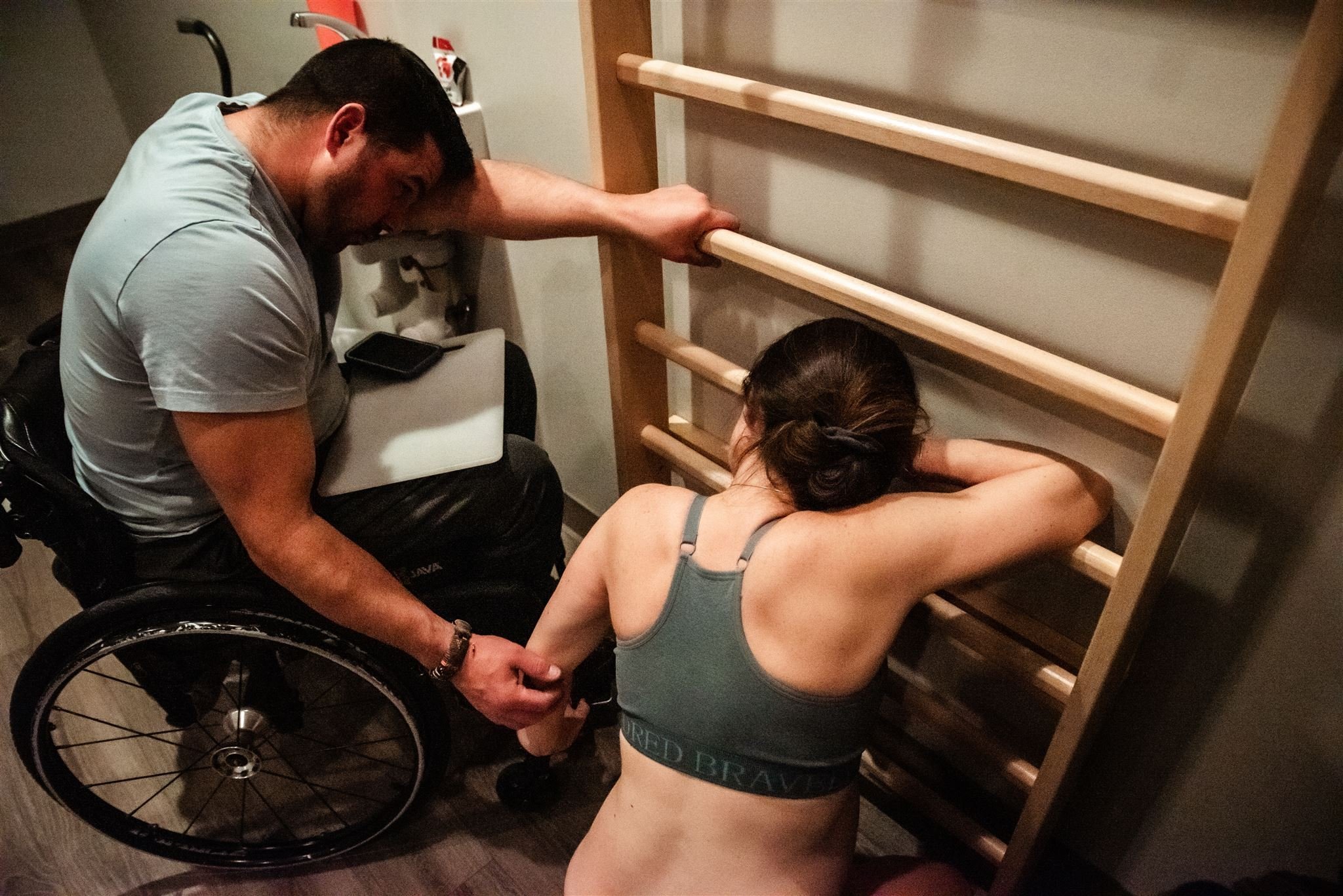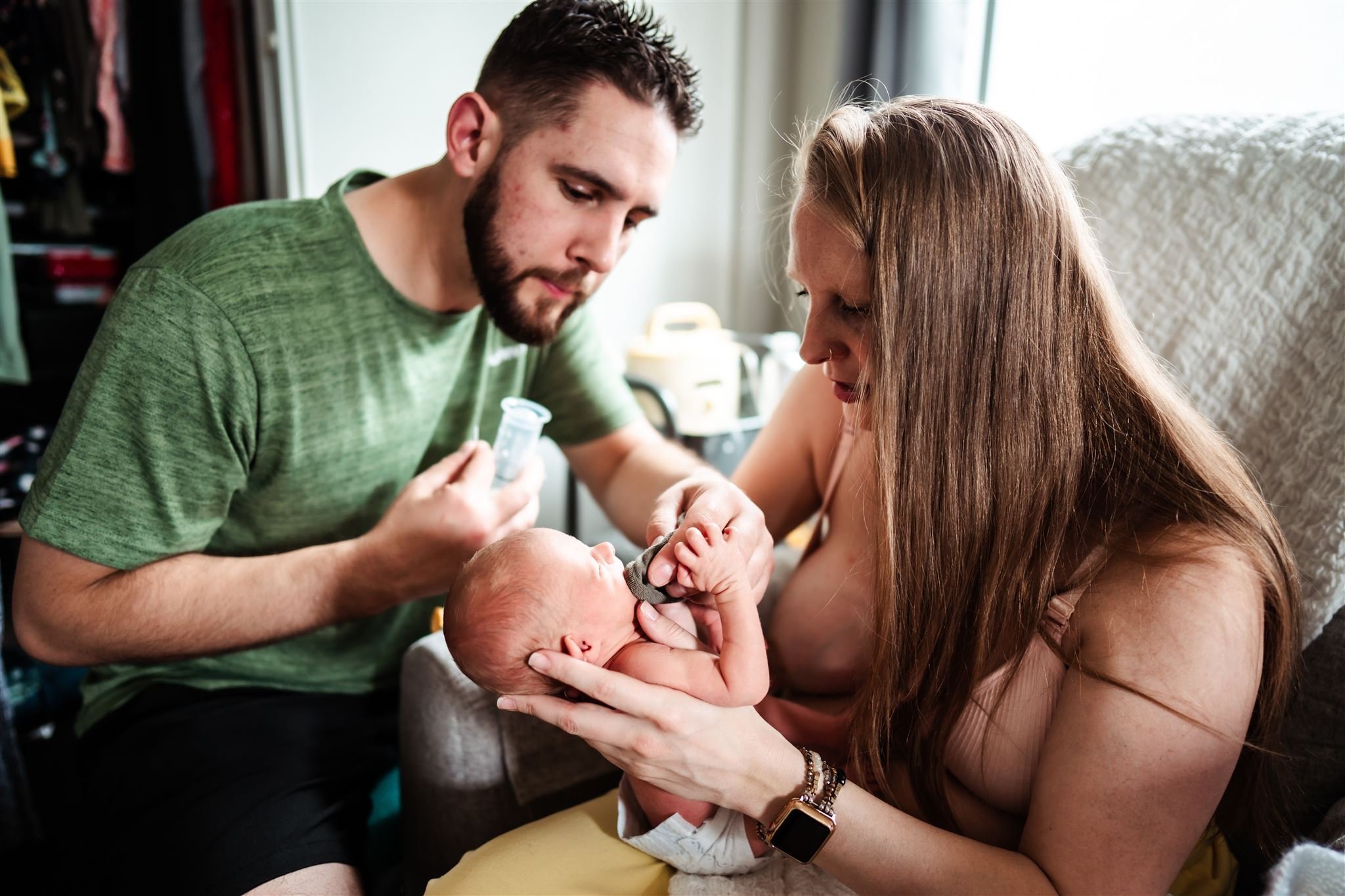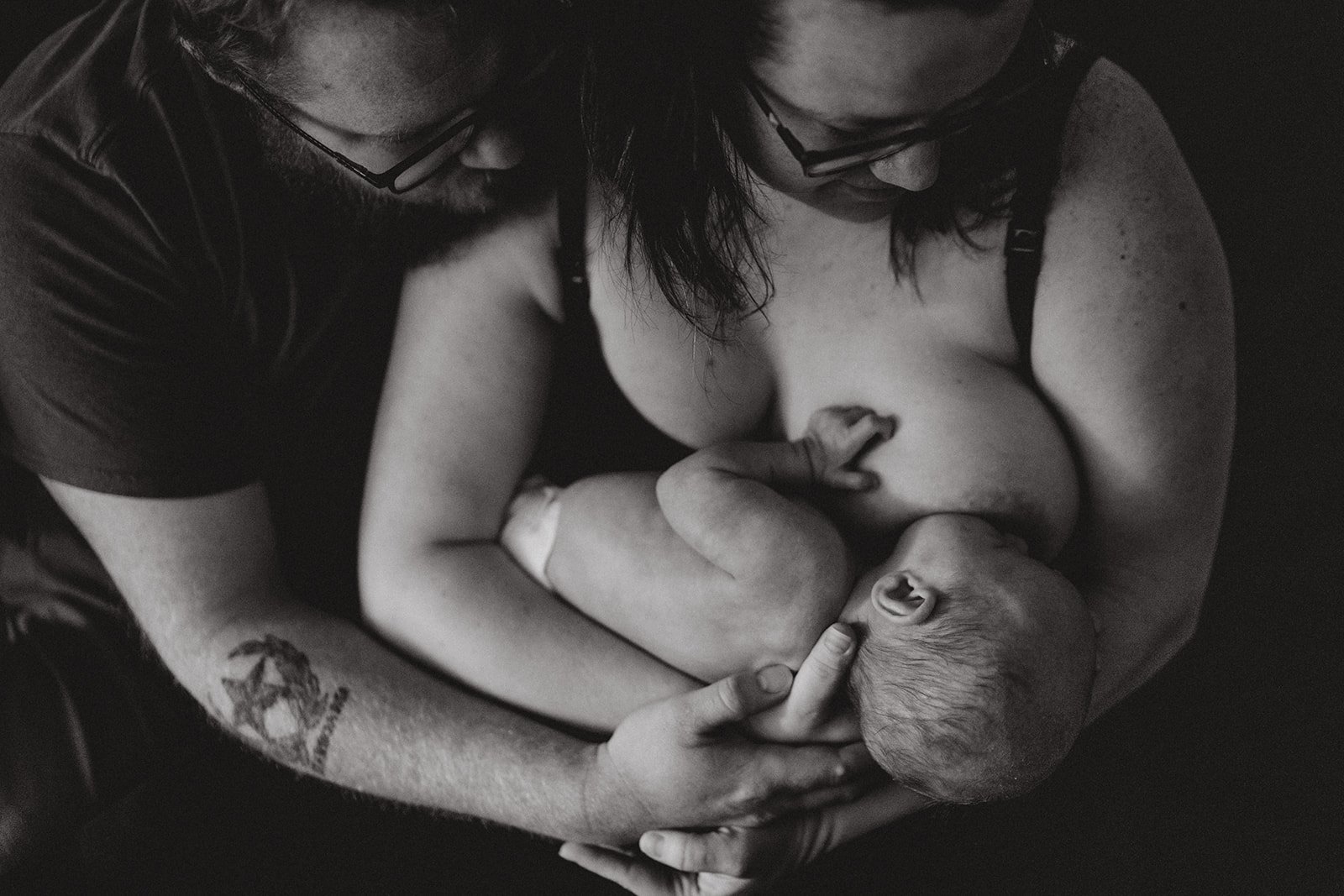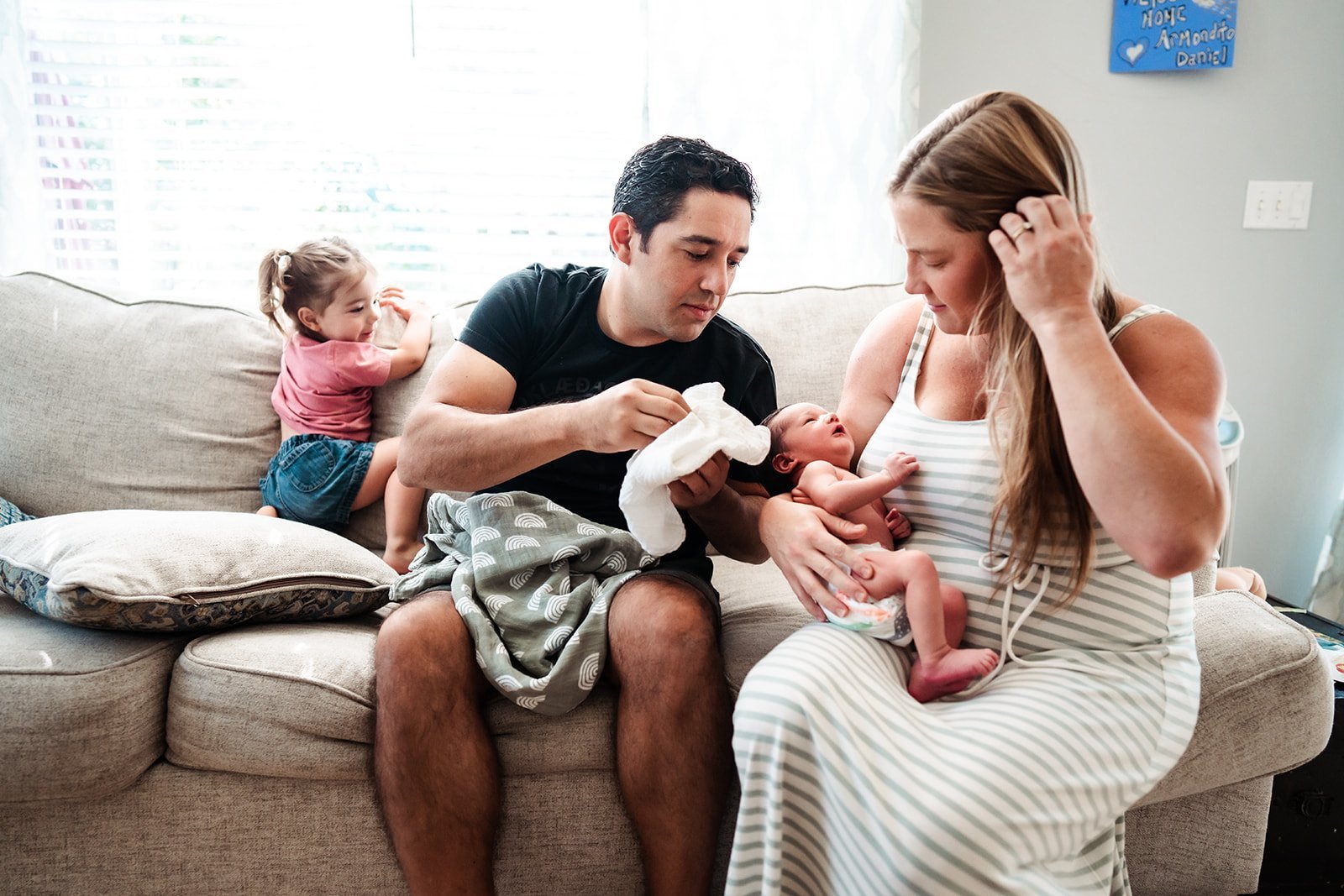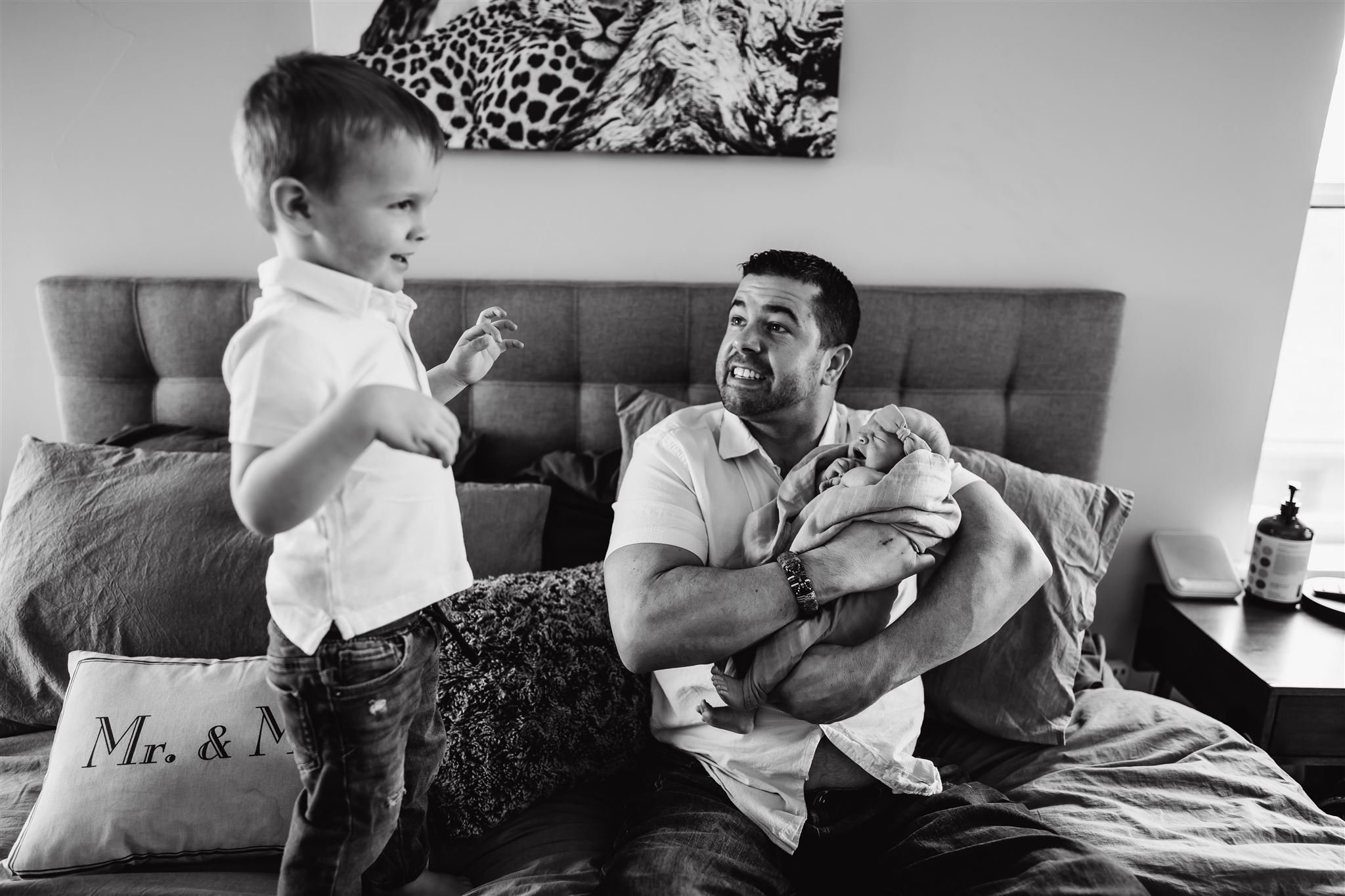What Makes a Great Birth Partner?
“You already have the most powerful tool you will need to support your birth and that is the love that you have for one another. It is what brought you to this point and it is what will carry you through. My role as your doula is to support you two so that you can utilize that love without distractions.”
Lindsey Eden Bartell
What if I told you that the partner's role in birth is not just important, but profoundly influential in shaping a positive, empowering experience?
While the laboring partner holds the majority of the work, the role of the partner should never be underestimated. It's about offering unwavering support, trust, and a profound sense of connection. In this blog, my focus is on partners who choose to step into the vital role of a birth partner. While it's often assumed for spouses to take on this role, I believe it should be a choice made with love, readiness, and willingness to wholeheartedly support. If this isn't possible, considering other primary birth partners, like a mom, sister, friend, or doula, may be a more empowering option. Throughout this blog, we'll delve into the incredible power that every birth partner possesses, and how tapping into this power can create a space of unconditional support, guided by the trust you've cultivated together. We will talk about the choice of birth partner and the responsibility it holds as an advocate, friend, and sometimes lover (if this feels authentic to your connection)
I hope this blog serve as a guide to strengthen your connection, ensuring that both of you emerge from this experience transformed and empowered.
Choosing to be a Birth Partner
I firmly believe that being a birth partner should be a conscious choice, a commitment we make to our laboring partner. In many of the families I support, the primary birth partner is often the spouse, and the love, intimacy, and trust they've already cultivated form the foundations for navigating the journey of birth and labor with strength and surrender. However, for those without a partner, identifying a trustworthy and supportive birth companion can be profoundly healing and empowering. This might be a close friend, a family member, or a doula.
Choosing to be a birth partner intentionally holds immense power. It's an active decision that prompts us to continuously ask, 'What can I do? What should I do? How can I truly be a partner?' While this may seem self-evident to some, I've also witnessed births where the partner/spouse was physically present but emotionally distant from the experience. Perhaps they weren't quite prepared for the arrival of a new baby, or maybe they simply didn't know how to fully engage in the birthing process.
And while these reason may be understood, that lack of support reverberates through the entire birthing experience. This is because it leaves the laboring person feeling a lack of tangible security and love in their most vulnerable moments. They feel alone.
I don't place blame solely on disengaged birth partners. Our culture has, unfortunately, perpetuated the notion that partners, often husbands, should be 'grossed out' by birth or told that by witnessing birth they will alter their perception of their partner's ‘sexiness’. It's a harmful and persistent misconception. Because, if you ask any of the supportive spouses who opened themselves up to birth they would tell you that to witness their partner give birth was to watch them find strength and power deep within, transform like a badass, and grow in the most human way possible. All in a matter of hours and a season of 9 months.
So if you want to witness this and be apart of your partner’s expansion, I hope you make the time to intentionally choose to be a birth partner. Your choice and the energy you put into preparing will make such a profound difference for all of you.
How to prepare for birth as a birth partner
Seek Education
Now that you've consciously chosen to be a birth partner, it's time to learn how. One of the most effective ways is through education. Books like Penny Simpkin's 'The Birth Partner' are specifically tailored to guide a partner through the intricacies of birth, paying careful attention to the needs of the birthing partner and how they can support their loved one during labor. Additionally, taking a birth class can be incredibly beneficial. Connecting with other couples going through the same season of life can provide valuable insights. If you find that you learn best from a teacher, this approach may be the most effective in allowing all this knowledge to sink in
Communicate and Create a Birth Plan
Engaging in open and honest conversations about fears and expectations is a vital part of the process. As the birth partner, it’s not up to you to decide what your loved one does with their body, but you do have a space to express your thoughts and feelings. If you've taken the time to educate yourself about birth, you may have different perspectives than your partner regarding their birth preferences. Hence, it's crucial to discuss these matters and strive to collaborate as partners in creating a birth plan that empowers both of you. This can be a great time to also enlist the support of your care provider or doula to help be a 3rd voice of education and support as you both navigate the many decisions of birth.
How to support during labor and birth as a birth partner
Navigating labor together is the most transformational and challenging part of the process. There is still so much unknown as you prepare, but it's important to have a spirit of openness and rely heavily on your love and built trust together. That connection is such a powerful tool for navigating whatever comes during birth.
Physical Support
A great place to start for feeling prepared is with gaining knowledge about the many physical techniques that can help with pain relief and support optimal positioning for your partner during labor. This may involve offering gentle massages to ease tension or applying counterpressure to alleviate discomfort in their hips and back.
It can also be beneficial to learn effective labor positions. Some you may be able to physically support them in while others you can help by reminding them to try different ways to stay mobile and allow gravity to help in the process. You’ll be surprised at how quickly you feel apart of the process when you are physically working with your partner during labor. Touching and connecting in this way will deepen your connection with each other fostering a strong sense of unity and shared purpose throughout the process.
Emotional Support
Now, emotional support plays just as pivotal a role in the labor and birth process as the physical aspect. Providing a safe space for your partner to express their feelings, fears, and hopes can make a world of difference. This support begins from the moment that positive test appears, culminating in their need for encouragement and shared strength during labor. Speaking words of truth and affirmations as they navigate each contraction is a powerful way to remind them of their strength and capability. Reassurance in moments of doubt or uncertainty helps them feel grounded and secure. And one of the most important tools to master for birth is active listening. While you may not be able to fix every challenge in birth or alleviate every surge of pain, listening, truly hearing, and validating their feelings can be just as powerful. Active listening fosters trust and makes it clear to your partner that they are truly being seen and understood.
What does it mean to be an Advocate?
Being an advocate for your birth partner is an incredibly important role during the process of birth. It requires understanding the birth plan and being able to stand firm on behalf of your birthing partner so that their body and wishes are honored even if plans change.
The role of advocacy becomes a lot easier when you’ve already made the time during pregnancy to have open conversations about needs, fears, and the birth plan. But changes may arise that need immediate decisions. So having a foundation of trust formed through creating your birth plan can be incredibly helpful. There may be moments when your partner is in the throes of labor or unable to speak for themselves, so your role as an advocate is to give voice to their hopes and needs.
As an advocate, you become a bridge between your partner and the healthcare team. If it’s a team you’ve already created trust with, this may simply look like ensuring that their preferences are clearly communicated and respected. If plans change or a transfer of care occurs, then this may also look like asking questions on their behalf and making sure that they have the opportunity for informed consent at every step.
Another important part of advocacy is in creating an empowering environment for birth. You may have to shield your partner from unnecessary stressors or even ask people to leave the space so they can find solitude. Advocacy sometimes simply looks like active presence. Stay rooted by their side and only allow safe and supportive people into your shared sacred space.
Being a Birth partner must extend into postpartum too
Being a birth partner doesn't stop once the baby is born—it's a continuous role that extends well beyond birth. Postpartum is a season of deep change and long healing. Your partner will need you even if they can’t articulate that back to you. You’ll both be working through the transformation of parenthood (if you are also spouses) but it’s still important to approach this time with a spirit of service, recognizing that your partner's body, mind, and emotional state have gone through ALOT and their need for time and recovery is valid and real. While you may also be tired and overwhelmed, remember that everything about them has changed and they have to pick up those pieces to find themselves again, likely amidst even greater exhaustion and pressure. Offering support in daily tasks, ensuring they have the space to rest, and actively engaging in the care of the newborn can make a world of difference. This is only a season and your humility and love for your partner during this time will grow such deep and beautiful roots for your connection and parenting journey.
Advocacy also remains a key part of the postpartum season. It’s your job to keep an eye on your partner for any signs that may indicate they need additional support. This may encompass challenges like postpartum depression, anxiety, or difficulties with breastfeeding. Having that open communication established will be profound and a great place to start as you encourage them to share their feelings and concerns. If you notice any red flags, be proactive on their behalf in seeking peer support, professional help or assistance from a healthcare provider. Remember, your unwavering support during this postpartum period is just as vital as it was during the birth itself.
PLEASE watch this incredible documentary, No One Told Me, created by Zulilah Merry. While the story is definitely centered around the birthing persons postpartum experience, her partner and support team play a big role in helping her navigate this unique time. One of the many things I found so incredibly touching about this story was the unwavering support from her husband, illustrating how much power that connection can hold in the healing process.
When you choose to be a birth partner remember that your role is important. You hold space, you advocate, and most importantly, you love. Embrace your role with an open heart and a spirit of support, knowing that your presence and investment in the process make a profound impact on this transformative journey.
Meet Lindsey
I am a certified and award-winning birth photographer and videographer, as well as a certified birth doula. I work in Denver, Colorado and the surrounding areas. I have always been passionate about the arts, especially photography. After giving birth to my two lively and loving children, I discovered the world of birth and developed a new passion. Combining my love for photography with supporting birthing families has become my career and brings me immense joy every day. It gives my life true meaning and happiness.
















